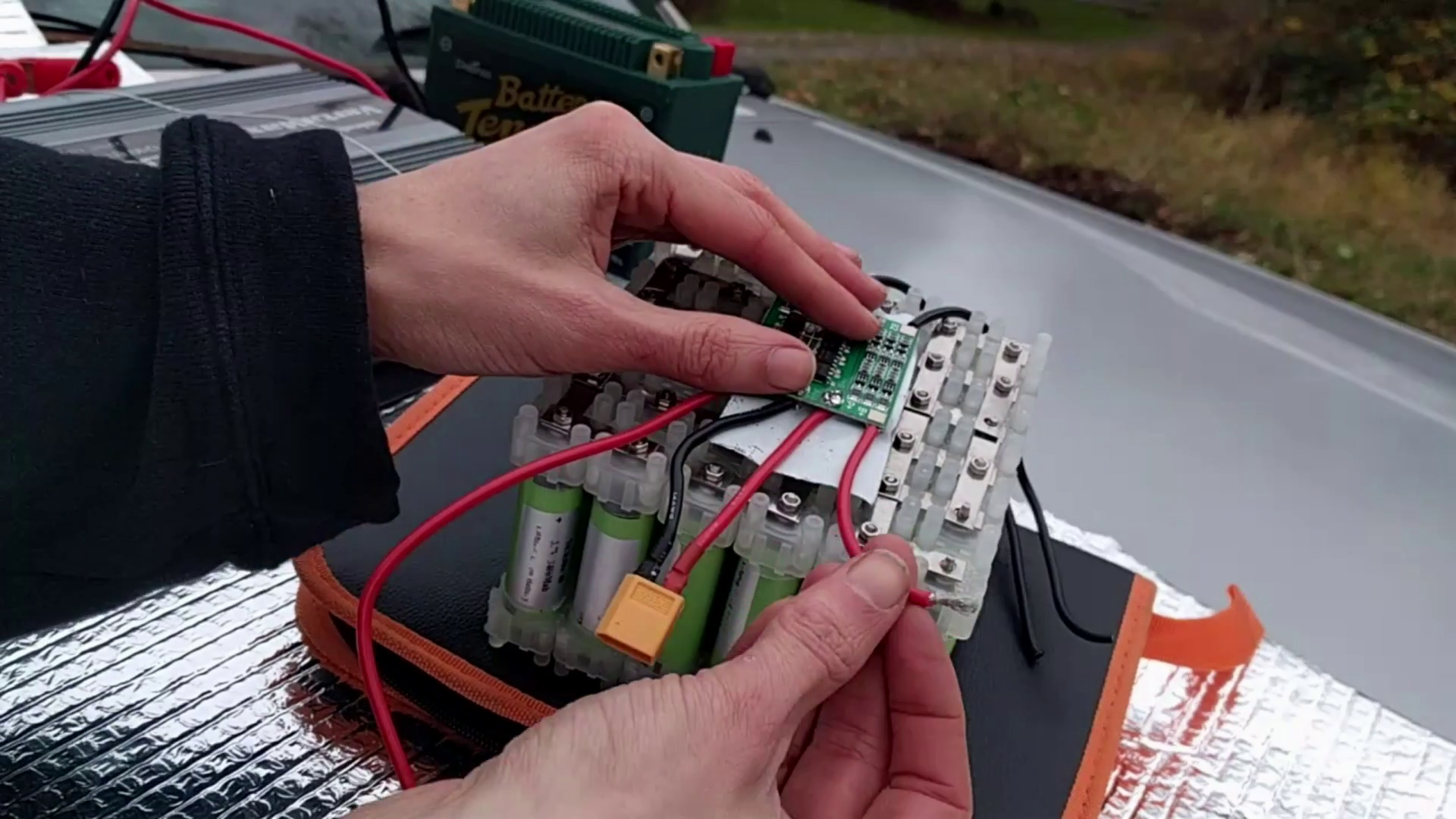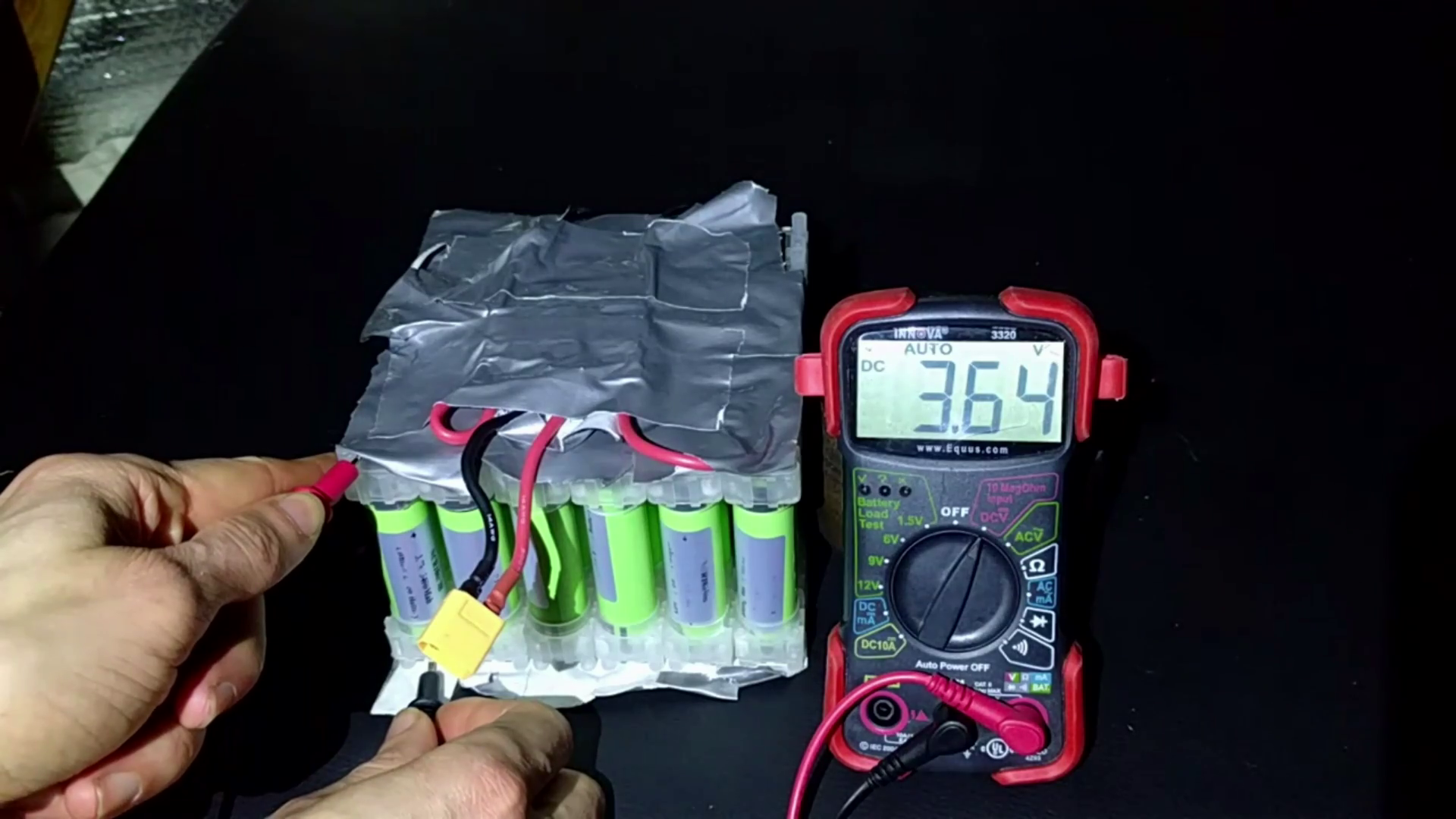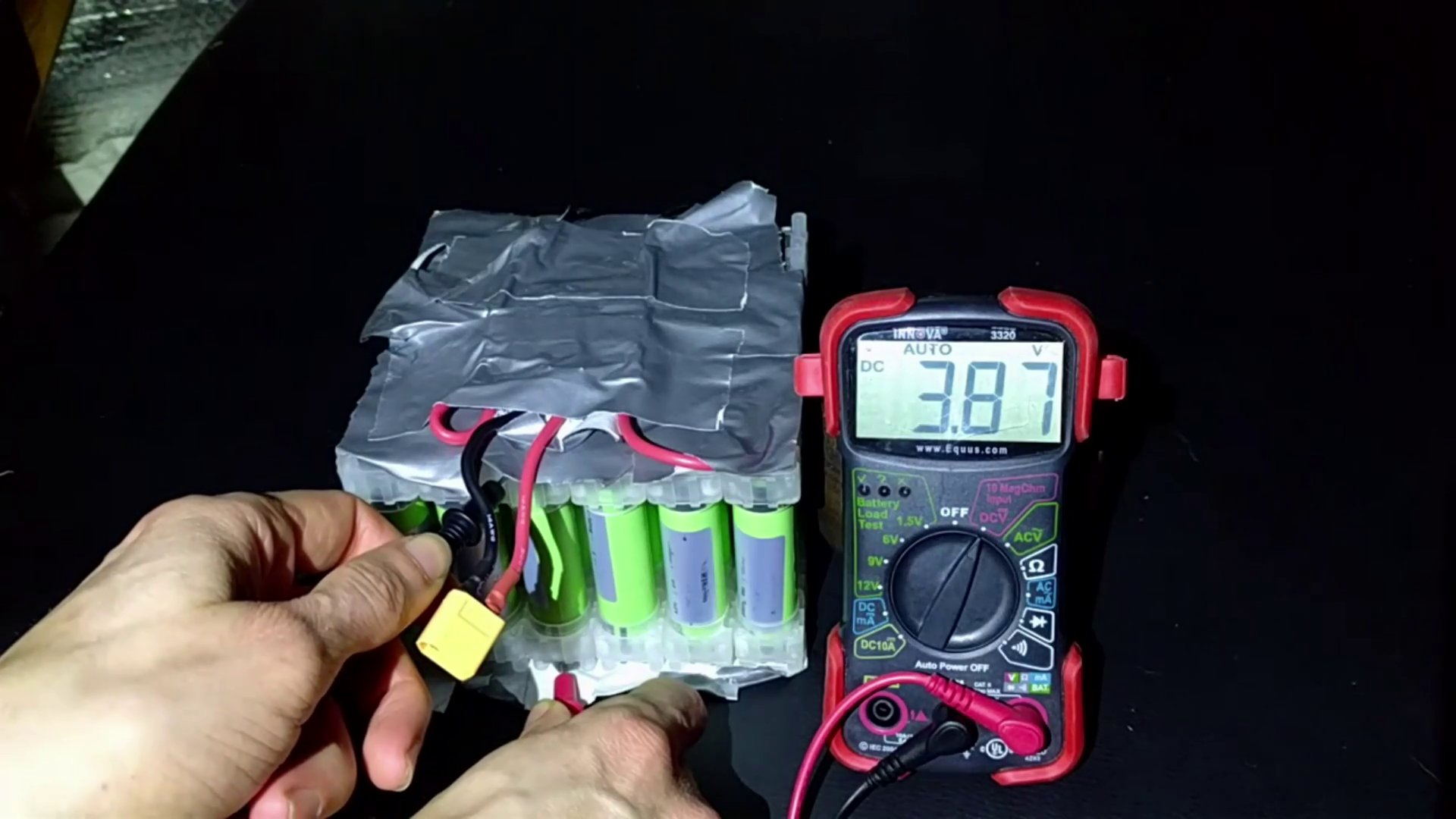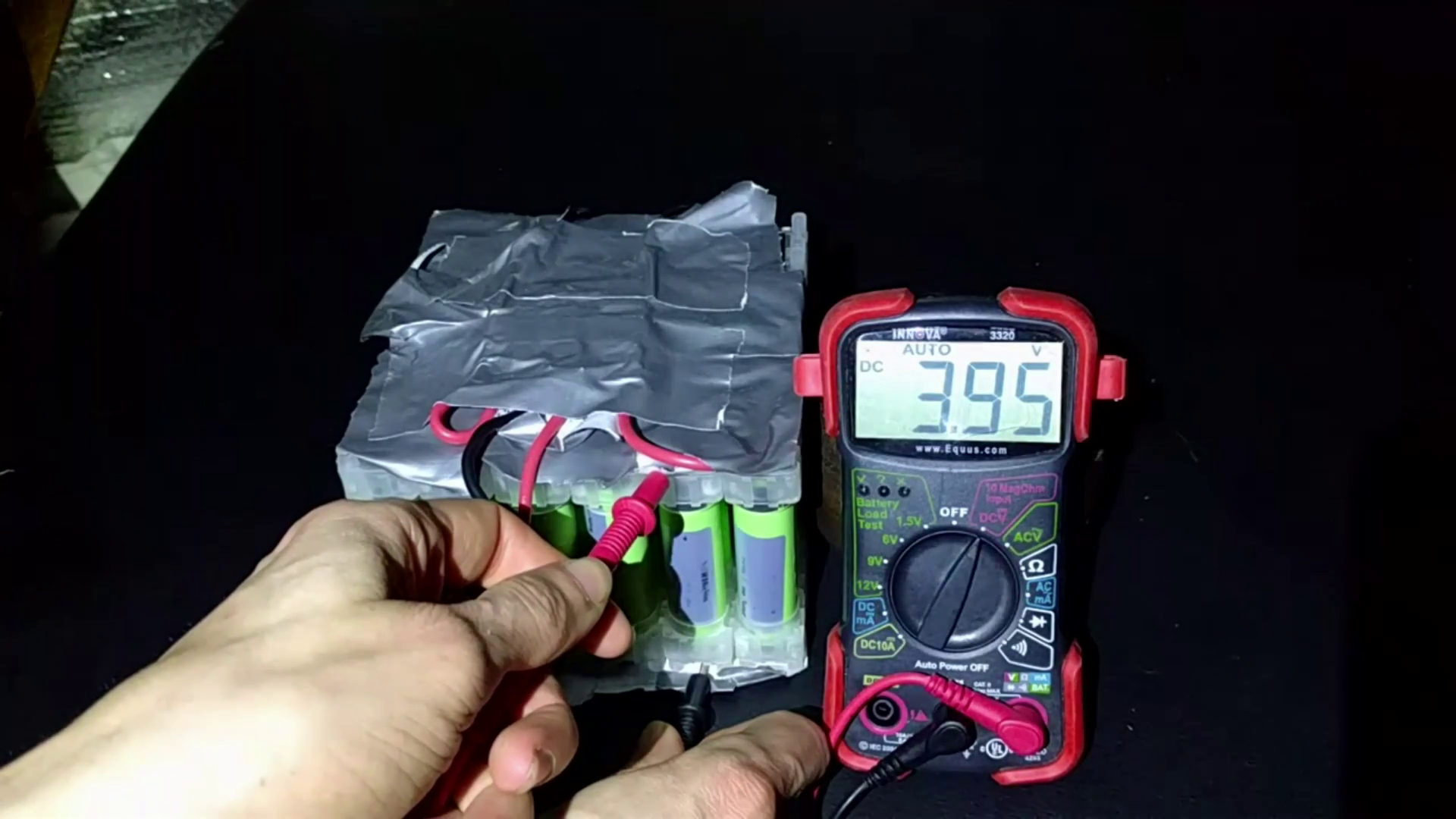Installing a Battery Management System
Hello Friends! I've been having some issues with my custom made Lithium Ion Battery Pack recently, and decided to try installing a Battery Management System (BMS) to see if it could improve the situation.
Some of the parallel groups in my pack were running lower in Voltage than the other groups which lowered overall capacity and actually destroyed a few of my 18650 cells. A BMS is intended to prevent that from happening by balancing the charging process and preventing a single parallel group from being discharged too low which can damage the cells.
A Battery Management System is a little circuit board which performs this magic when you have it wired up to the battery pack correctly.
Before we start, let’s take a closer look at the problem. This battery pack is 3 Parallel Groups wired in a Series. Each Parallel group is 4.2 Volts at max change, so the entire battery pack is 12.6 Volt at max charge (i.e. 3 x 4.2 Volts). I’ve been using this pack a bit, so you can see it’s not quite at full charge right now.
Since the overall Voltage is 11.42 Volts, each Parallel Group should be at about 3.8 Volts if the pack is well balanced. Let’s see how close we are…
The first Parallel Group is at 3.95 Volts, a bit higher than expected. This indicates already that at least one of the other groups is below the 3.8 Volts we’re expecting.
The middle group is at 3.84 Volts, so much closer to what we were expecting. This does however guarantee that the final group is going to be low…
As expected, the final group is pretty low at a Voltage of 3.62. So our Voltage Range in our pack is from 3.62 Volts to 3.95 Volts when ideally every grouping was the same.
Now that we understand the problem, time to see if we can solve it by installing the Battery Management System. This will require the use of a Solder Iron to create strong electrical connections between the BMS board and the Battery Pack.
Here’s the Soldering Iron and Wire that I like to use. I run it off of a small Lithium Iron Phosphate lawn mower battery I have lying around.
Solder Wire is solid at room temperature, but when it is pressed against the hot tip of the Soldering Iron it will melt and become a liquid blob of metal.
When I touch this blob to a point where I want a wire and the circuit board to meet it will re-solidify creating a permanent connection. Here’s what the BMS looks like after I’ve soldered all the connections.
The next step is to place the BMS on the Battery Pack and connect all of the wires to the correct points. This is done by removing the metal nuts and bars in the correct locations, sliding the wire underneath and then reconnecting the bars and nuts to secure the connection.
After hooking it all up, I decided to install a Solar Charge Controller to keep the charge and discharge levels at safe amperage for the battery. Too high of amperage can ruin your batteries and even lead to fires! This charge controller is meant for being connected to a Solar Panel, but I wired it to plug into the Cigarette Lighter Terminal in a car instead.
You can see here I’m about to plug it into my running truck in order to charge the battery so we can see how well the BMS is balancing things.
After giving the Battery Pack a full charge, we can see that the overall Voltage is 12.61. It’s max charge is 12.6 Volts, so this is pretty darn close.
The Solar Charge Controller would have led to that ideal result on its own, so let’s check each of the Parallel Groups to see how well they’re balanced, starting with Group 1.
We want a Voltage of 4.2 for each Parallel Group, so 4.19 Volts on this group is good news! Let’s check the next one…
Uh oh… 4.23 is over the max charge of a Parallel Group. It’s probably not dangerous until it exceeds 4.3 Volts, but it does mean we don’t have a perfect balance here. Let’s check the final group.
4.18 Volts seems pretty good as well. So all things considered we’re at a pretty balanced charge here with a range from 4.18 Volts to 4.23 Volts. We were 0.33 Volts out of balance when we started and 0.05 Volts off with the BMS installed after a full charge. Not too bad, but I was hoping for perfection!
Now I need to do a test of how well it stays balanced after it’s been discharging for awhile. To test this I will leave the battery hooked up to some lighting in the Yurt.
Let’s check each of the Parallel Groups again after the Battery Pack has run the lighting for about an hour.
3.64 Volts on the first group…
3.87 Volts on the middle group… yikes!
3.95 Volts… wow that is a really big imbalance! It looks like the BMS did not solve the problem I was experiencing.
I did some research after this little experiment and learned that a BMS will not keep the Parallel Groups balanced during discharge, and instead will just shut off the battery when one of the groups gets dangerously low to prevent damage. That’s an important feature I’m glad I have now, but it does mean there’s some other issue in the pack causing imbalance so quickly.
I currently suspect that I have a dead 18650 cell in one of the Parallel Groups which is causing that group to have far less capacity than the others. Unfortunately a Battery Pack is only as good as it’s weakest Parallel Group, so I’m going to have to run with a handicapped pack for now. Perhaps I’ll make a post in the future investigating further.
Thanks for stopping by!
@cahlenlee
To learn more about Cahlen Lee follow him here:
YouTube, Facebook, Twitter & Minds


















Great DIY project, love the detail and explanation you went through the video, hope you get to find the weakest link and please share how you go about it.
Love the details, you certainly have a better grasp on all of this than I. I'm grateful you shared this and hope the weak link is resolved.
Thanks @mountainjewel! I had to put the battery pack in storage recently to go on an adventure boondocking in the desert, so it may be awhile before I get back to that mystery.
Great guide! Good luck fixing it, looks like youre almost there. I would store energy in elevated water if I didn't have the problem of it freezing most of the year. Looks like it's too cold for you too.
Ya, we have several large cisterns on the farm, and they're frozen for the last 3rd of the year. Would be totally awesome though!
Woah thats awesome! Nice work
You deserve my first comment on steemit I hope to watch your new genius ideas soon